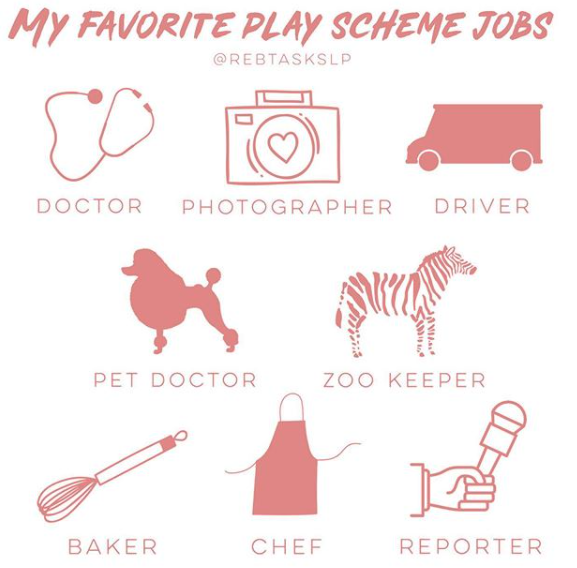There are many views on why children play, but a major emphasis during speech therapy is how they play. Play is a way to turn a child’s outside world in. There are sequenced stages of play which we have studied for years and years. Speech pathologists analyze a child’s play style to determine where breakdowns are in language, social skills, developing narratives, turn taking, sequencing, understandings of perspectives.
Sometimes we may need to help facilitate an environment for play so that the child goes through appropriate play stages in order to develop social skills which are needed for the long term. Play serves as a gradual, low pressured environment to teach skills that we use everyday from requesting, protesting (no), expressing, commenting, clarifying and on and on!

My favorite DIY play schemes that involve no-little prep work are the following 8:
- Doctor for ages 3-5yo+
- Photographer for ages 3-4 yo
- Driver for ages 2.5-5.5yo
- Pet Doctor for ages 3 -5yo+
- Zoo Keeper for ages 3.5-5yo+
- Baker for ages 14m-3.5y.o+
- Chef for ages14m – 3.5yo+
- Reporter for ages 5.5-7y.o+
